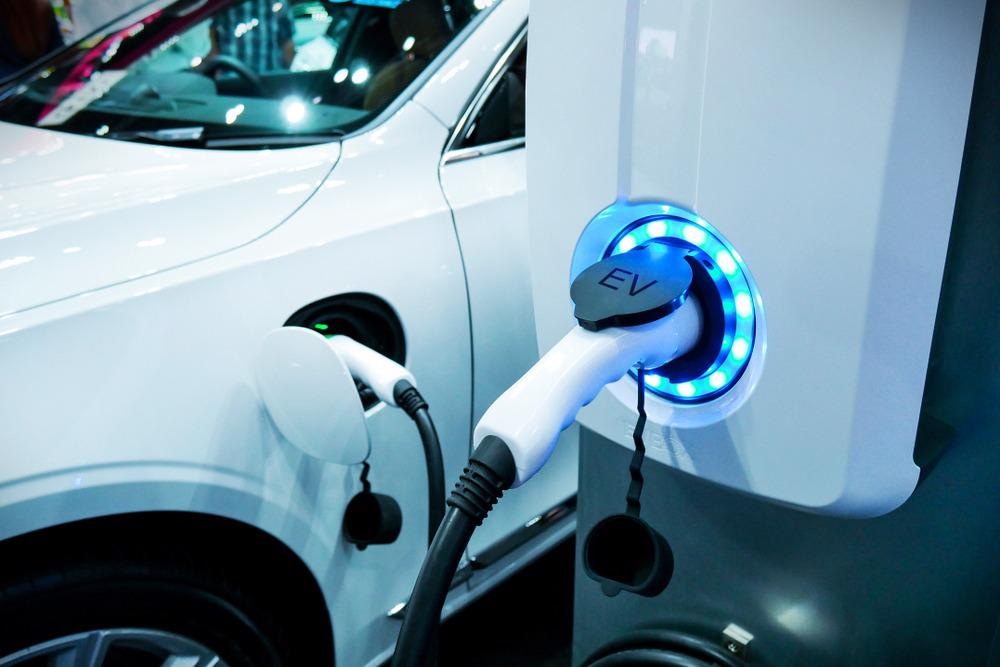South Korean automakers Hyundai and Kia have recently announced a partnership with Massachusetts-based Factorial Energy to develop next-generation solid-state batteries for future electric vehicle (EV) models.

Hyundai partners with solid-state battery firm promising breakthrough in the tech. Image Credit: buffaloboy/Shutterstock.com
While other manufacturers and electronic companies have announced alternatives to solid-state batteries for EVs, such as Tesla and Panasonic’s development of the 4680 battery, many believe that the successful development of solid-state batteries would unlock the greater potential of EVs.
With rapid charging times and greater efficiencies when compared to Li-ion batteries, solid-state batteries are attracting a great deal of attention in the EV and wider automotive industry.
In fact, for the past 40-years, the development of such technology has been underway since back in 1978 when oil and gas giant Exxon was looking into rechargeable battery technology using the expertise of solid-state physicists.
What Are Solid-State Batteries?
Solid-state batteries are based on a relatively simple concept: instead of using a liquid electrolyte such as those used in conventional Li-ion batteries, solid-state utilizes a solid electrolyte (as the name suggests). The battery’s negative terminal would also incorporate a pure metal anode, such as lithium.
However, until recently, solid-state battery technology for EV usage was mostly deemed theoretical, as the development of solid-state batteries had failed to live up to their promise of delivering superior energy densities, ultra-fast charging cycles, and significantly reduced risk of fire.
The benefits of solid-state batteries for EV usage also include enhanced safety, longer driving ranges, and improvements in the vehicle's weight, as they are lighter than other battery technologies.
“We can help unlock mass adoption of electric vehicles – and the resulting environmental benefits – through our safe and long-range batteries,” said Factorial Energy CEO Dr. Siyu Huang.
Factorial has developed a breakthrough technology that tackles the main issues otherwise holding back the roll-out of solid-state batteries in the EV market: namely, safety and driving range.
FEST
Earlier this year, Factorial announced their pioneering technology FESTTM (Factorial Electrolyte System Technology) which uses a proprietary solid-state material to facilitate safe and reliable cell performance. The commercial scale 40 Ah cell is said to increase EV range up to 50% and has been in development for the past 6 years.
The partnership with Hyundai and Kia is further evidence that Factorial has faith in its technology as it enters the global EV market: “Our partnership with Hyundai [and Kia] is yet another validation of our solid-state battery technology, and we look forward to demonstrating its market readiness in Hyundai vehicles,” said Huang.
While the fine details on the technology are still closely guarded, one of the standout properties of Factorial’s solid-state cells is that they have the capacity to function at room temperature and could pave the way for implementation in hi-spec and stationary energy applications.
The Hyundai CRADLE team has been impressed with Factorial’s management team, technology, and novel manufacturing approach, which could make the transition to solid-state seamless and cost-effective
Henry Chung, SVP and Head of CRADLE Silicon Valley
“We look forward to collaborating with our new portfolio company to further advance their technology,” Mr. Chung added.
The Future of EVs
What does this mean for the future of the EV market in general? While Panasonic recently announced production of the 4680 battery solely for Tesla, which will roll out in its high-end vehicle range including the Cybertruck, solid-state technology could transform the market altogether if developers can deliver on their promise at commercial scale.
Given the ever-growing faith EV manufacturers are placing in solid-state technology it is becoming more certain that the technology has a central role to play in the advancement of EVs. Recently, Volkswagen invested $300 million in the startup Quantum Scape (developers of solid-state battery technology) and since 2012, Toyota has filed 1000+ solid-state battery patents.
While Hyundai and Kia have not made any formal announcements regarding a timeframe and when to expect to see solid-state batteries in their EVs, the automotive manufacturers are expected to transition towards the technology in the near future. The future of solid-state battery technology will be a product of successful collaboration along the supply chain.
So, it seems that solid-state batteries are set to become a real alternative to lithium-ion batteries, and Tesla’s 4680 battery, as well as Factorial’s new project, will not only revolutionize the EV market but drive competition and address one of the key issues that the wider automotive industry is faced with today: the climate crisis.
References:
Reddy, M.V.; Mauger, A.; Julien, C.M.; Paolella, A.; Zaghib, K. ‘Brief history of early lithium-battery development’, Materials 13, 1884. 2020. https://www.mdpi.com/1996-1944/13/8/1884/html
Factorial. (2021). Transformational Solid-state Battery Technology. https://factorialenergy.com/
Szymkowski, S. (2021b, October 29). Hyundai partners with solid-state battery firm promising breakthrough in the tech. Roadshow. https://www.cnet.com/roadshow/news/hyundai-solid-state-battery-breakthrough-tech/
Disclaimer: The views expressed here are those of the author expressed in their private capacity and do not necessarily represent the views of AZoM.com Limited T/A AZoNetwork the owner and operator of this website. This disclaimer forms part of the Terms and conditions of use of this website.